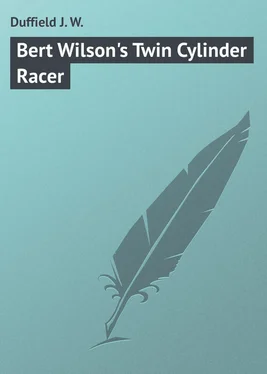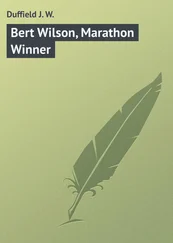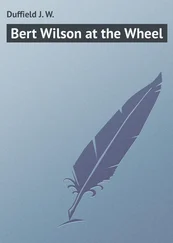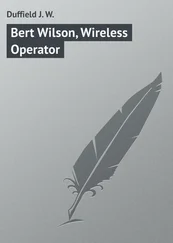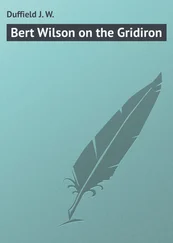J. Duffield - Bert Wilson's Twin Cylinder Racer
Здесь есть возможность читать онлайн «J. Duffield - Bert Wilson's Twin Cylinder Racer» — ознакомительный отрывок электронной книги совершенно бесплатно, а после прочтения отрывка купить полную версию. В некоторых случаях можно слушать аудио, скачать через торрент в формате fb2 и присутствует краткое содержание. Издательство: Иностранный паблик, Жанр: foreign_prose, foreign_children, на английском языке. Описание произведения, (предисловие) а так же отзывы посетителей доступны на портале библиотеки ЛибКат.
- Название:Bert Wilson's Twin Cylinder Racer
- Автор:
- Издательство:Иностранный паблик
- Жанр:
- Год:неизвестен
- ISBN:нет данных
- Рейтинг книги:5 / 5. Голосов: 1
-
Избранное:Добавить в избранное
- Отзывы:
-
Ваша оценка:
- 100
- 1
- 2
- 3
- 4
- 5
Bert Wilson's Twin Cylinder Racer: краткое содержание, описание и аннотация
Предлагаем к чтению аннотацию, описание, краткое содержание или предисловие (зависит от того, что написал сам автор книги «Bert Wilson's Twin Cylinder Racer»). Если вы не нашли необходимую информацию о книге — напишите в комментариях, мы постараемся отыскать её.
Bert Wilson's Twin Cylinder Racer — читать онлайн ознакомительный отрывок
Ниже представлен текст книги, разбитый по страницам. Система сохранения места последней прочитанной страницы, позволяет с удобством читать онлайн бесплатно книгу «Bert Wilson's Twin Cylinder Racer», без необходимости каждый раз заново искать на чём Вы остановились. Поставьте закладку, и сможете в любой момент перейти на страницу, на которой закончили чтение.
Интервал:
Закладка:
Bert and Dick roomed together, while Tom’s quarters were on the floor below. Now, as it was nearer, they all piled into Tom’s sitting-room, eager to discuss the contents of the official letter.
“Here it is,” said Bert, as he tossed it over to the others. “You see, I have the southern route.”
“O, thunder,” groaned Tom, “the toughest of the lot. You’ll fairly melt down there at this time of year.”
“It is rough,” said Dick. “The roads there are something fierce. The northern or central route would have been ten times better.”
“Yes,” agreed Bert, “it certainly is a handicap. If I’d been left to choose, myself, I wouldn’t have dreamed of going that way. Still, it’s all a matter of lot, and I’ve got no kick coming. Somebody would have had to draw it, and I might as well be the victim as any one else.”
“Spoken like a sport, all right,” grumbled Tom. “But it makes me sore at fate. You’ll need something more than Reddy’s shamrock to make up for it.”
“You might hunt me up the hind foot of a rabbit, shot by a cross-eyed coon in a graveyard, in the ‘dark of the moon,’ if you want to make sure of my winning,” jested Bert. “But, seriously, fellows, I’m not going to let that rattle me a little bit. It may be harder, but if I do come in first, there’ll be all the more credit in winning. As for the heat, I’ll make my own breeze as I go along, and I’ll take my chances on the roads.”
“Well, I suppose there’s no use growling,” admitted Tom, grudgingly. “At any rate, we’ll see a section of the country we’ve never seen before.”
“ We ,” cried Bert. “What do you mean by that?”
“Just what I say,” answered Tom, looking a little guiltily at Dick.
“What,” yelled Bert, leaping to his feet. “Are you two rascals going along?”
“Surest thing you know,” said Dick, calmly. “Did you think for a minute that Tom and I would miss the fun of seeing you scoot across the continent and win that ten thousand dollars? Not on your life. We were going to surprise you, but since this dub has let the cat out of the bag, we might as well own up. There’s nothing to do, now that we know the route but to go out and get the tickets.”
“Well, you’re a pair of bricks,” gasped Bert. “The finest pals a fellow ever had. That’s the best news I’ve had ‘since Hector was a pup.’ I didn’t know that I’d see a friend’s face from the start to the finish. Talk about shamrocks and rabbit’s feet! This news has got them skinned to death. It won’t be any trick at all to toss off a few hundred miles, if I can figure on seeing you fellows when I turn in for the night. Say, fellows, I can’t put it into words, but you know how I feel.”
“Pure selfishness on our part,” said Dick, airily, to mask his own deep feeling. “We want to see the San Francisco Fair, and figured that we’d never have a better chance.”
“Yes,” mocked Bert, delightedly, “I size up that selfishness all right. But now let’s study the route and figure out the schedule. Then you gay deceivers can get through tickets with stopover privileges, and I’ll know just where to find you along the way.”
“You see,” explained Tom, “we figured that we could get into the big towns ahead of you and act as a sort of base of supplies. You can keep tab on the way the ‘Blue Streak’ is running, and if anything goes wrong – if a tire bursts or a fork breaks or you have engine trouble – you can wire ahead and we’ll have everything ready for you to make a lightning change the minute you heave in sight. Of course, you may have to do some temporary patching and tinkering along the way, but in really big things we may come in handy. But now let’s cut out the hallelujahs and get down to brass tacks.”
Which they did to such good effect that before they turned in for the night, they had outlined a plan that covered every probable contingency. Of course there was no such precision possible as in the case of a railroad schedule. A hundred things might happen to cause a change here, a delay there, but, between certain elastic limits, the route and time were carefully worked out. If they should have to revise it, as they doubtless would, the telegraph and long distance telephone could be depended on to help them out.
Starting from New York, Bert figured that the first leg of the journey would take him as far as Philadelphia. This, of course, would not be typical of the regular distance he would have to cover each day, in order to beat the time record. But the race was not to start until noon, so that a half day was all that would be left the riders. And that half day would be slower than the average, because they would have to thread the streets of the greater city with all its hindrances and speed regulations, and would have bridges and ferries to cross before they could fairly let themselves out. Of course this would not count for a day in the timing, as they would be allowed a half day at the end of the journey to make up for it. In other words, the day ran from noon to noon, instead of from midnight to midnight.
From Philadelphia the route would lead to Baltimore and Washington. Then he proposed to strike down through West Virginia and into the famous Blue Grass region of Kentucky and thence swing down toward Little Rock, Arkansas, which would mark the extreme southern point of the journey. After that, he would be going almost directly west, with a slight trend to the north. He would cut through Oklahoma on a direct horizontal, and then for a short time traverse the upper part of Texas. Leaving the Lone Star State, he would strike in succession Santa Fé, New Mexico, and Flagstaff, Arizona. Then, at last, he would be in California, getting a glimpse of the sea at Santa Barbara, and then sweeping up the valley to San Francisco.
The record he had to beat was twenty days. He planned to do it in fifteen. That is, he was confident that as far as mere time were concerned, he could reel off enough miles every day to take him over the route within that limit. But that was assuming that everything went smoothly, and, in a trip of this length, he knew that such an assumption was absurd. He gave himself three days for accidents and delays. This, added to the fifteen of actual running time, would still give him a comfortable margin of forty-eight hours. But, on the average, despite accident or breakdown, wind or rain, sickness or health, mistaken roads or dangerous spills, flood or freshet or tempest, he must make from two to three hundred miles every day. Not only he must be in shape to do it, but the “Blue Streak” also. There were two machines that had to take all the chances of wear and tear and mishap – the physical machine above the saddle, and the steel and rubber machine below it.
He wanted to make the most of the good roads that he would have at the very beginning of the trip. The first three days would be the best ones, as far as this feature was concerned. The Eastern and Northern States were far ahead of the rest of the country in this respect. Their wealth and population, as well as the vastly greater number of motor vehicles in use, had early turned their attention to the value and necessity of the best kind of roads that money could buy and science invent. After he left Louisville, the going would be harder. While, at places, there would be magnificent turnpikes along the main arteries of travel, these would be more than counterbalanced by roads where clay and sand predominated. But, to make up for this, would be the fact that for long distances the roads would be clearer and the speed regulations less stringent. And, on these stretches, Bert promised himself to “hit it up” hard enough to compensate for the inferior quality of the road. It was “all in the game,” and, in the long run, things would about even up.
Читать дальшеИнтервал:
Закладка:
Похожие книги на «Bert Wilson's Twin Cylinder Racer»
Представляем Вашему вниманию похожие книги на «Bert Wilson's Twin Cylinder Racer» списком для выбора. Мы отобрали схожую по названию и смыслу литературу в надежде предоставить читателям больше вариантов отыскать новые, интересные, ещё непрочитанные произведения.
Обсуждение, отзывы о книге «Bert Wilson's Twin Cylinder Racer» и просто собственные мнения читателей. Оставьте ваши комментарии, напишите, что Вы думаете о произведении, его смысле или главных героях. Укажите что конкретно понравилось, а что нет, и почему Вы так считаете.
